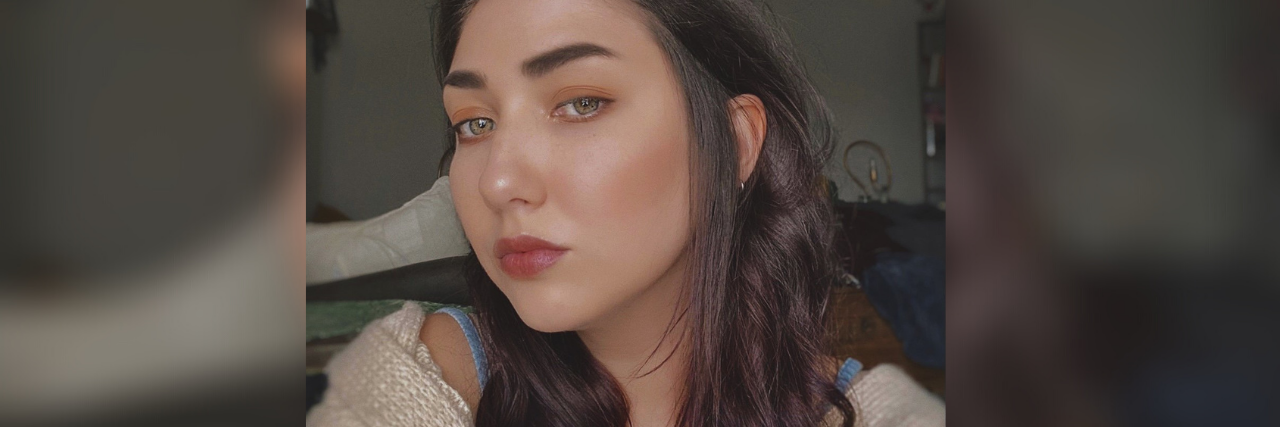5 Steps to Starting the Conversation If You Think a Loved One Self-Harms
Editor's Note
If you struggle with self-harm or experience suicidal thoughts, the following post could be potentially triggering. You can contact the Crisis Text Line by texting “START” to 741741. For a list of ways to cope with self-harm urges, visit this resource.
I have struggled with self-harm in many forms on and off since I was 13. It’s been a battle, to say the least. I’ve had some time periods without it, but I’ve also had a lot of time in the trenches of it. As of right now, I’m happy to say I am two months and 13 days clean.
It’s so hard, starting the conversation if you think someone may be hurting themselves, so here is some advice from someone who is on the other end of this.
1. Don’t ask for proof.
Please don’t ask to see any part of our body to prove to you that we are harming ourselves. It really makes the shame even worse, and truthfully, even if it is coming from a place of care and concern, it can come off as unempathetic.
2. Start slow.
Bring up the topic of depression in general, or even just holding in feelings. Talk about it with them, normalize it, open the door for them to know it’s OK to discuss these things with you.
3. Consistently ask if they are OK.
Not a general, “Hey, how are you?” Ask, “How have you been doing lately? I know you have XYZ happening, do you want to talk about it?” Or, “I really want to know how you’re doing, so let’s catch up on everything!” More often than not, our automatic response in society is to go to “I’m good!” without thinking twice. Keep asking, so we do think twice about how we respond.
4. Express concern.
Once you’ve opened that door — asked how they are, consistently had conversations about how they feel — then express your concern. Don’t make it an accusation. Please say, “I’m worried. I feel like you may be dealing with some things we haven’t talked about. Do you think you can tell me what has been going on? I really care about you, and want you to be OK.”
5. Whenever they are ready to open up, don’t give up there.
Talk about therapy, still ask consistently how they are, be there. But please remember, you aren’t our therapist. It isn’t your responsibility to fix us; please just listen. It is our responsibility to set boundaries on what we put on other people, and it’s also your responsibility to set your own, and that’s 100% OK.
It’s painful to know that someone you care about is harming themselves. I really hope this helps some people open the door to discuss mental health more openly.
For more on how to help your loved one, read our guide on self-harm in adults and self-harm in young people.
Image via contributor

